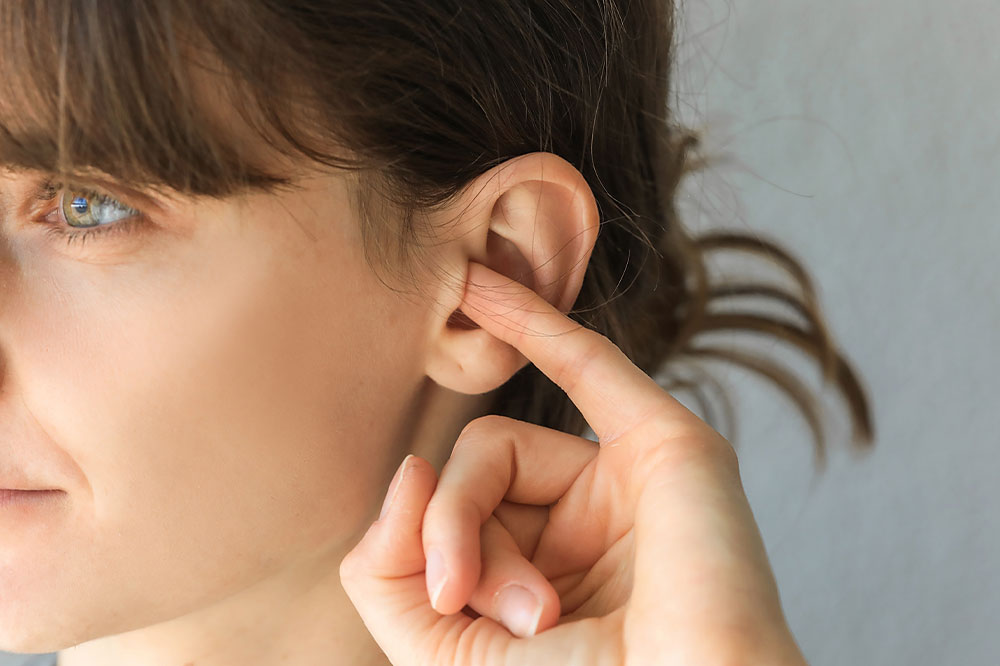Causes of Itchy Ear and Remedies to Manage It
An itchy ear may indicate a severe underlying health condition, such as a tumor or ruptured eardrum, and, therefore, necessitates prompt attention from a healthcare professional. Several factors, including allergies, humidity changes, or neurological conditions, can lead to itchy ears. Identifying the underlying causes of itchy ears is important to treat the condition effectively. Keep reading to learn more about the early warning signs and home remedies for itchy ears.
Causes of itchy ears
Some common causes of the itchy ear are listed below.
- Earwax buildup- A natural substance called earwax protects the ear canal from dust, dirt, and other foreign entities.

Best treatments and home remedies for itchy ears
Several home remedies for itchy ears can ease the discomfort caused by the condition before resorting to prescription treatment.
Saltwater solution
A saltwater solution is one of the easiest and most effective itchy ear remedies. The ear canal’s skin can be soothed by saltwater, reducing inflammation. A saline solution can be prepared by mixing a cup of warm water with half a teaspoon of salt. The solution should be poured into the affected area and allowed to sit for about a minute before draining. If you do this twice or three times a day, you will be able to relieve the itching.
Olive oil
Another effective ear drop for itchy ears is olive oil. This product contains anti-inflammatory properties that can soothe the skin and reduce irritation. A dropper can be used to apply olive oil to the affected ear after it has been warmed up. After it settles for a few minutes, drain it out. The itchiness can be relieved by doing this once a day for a few days.
Apple cider vinegar
Itchy ears caused by fungal infections can be reduced using apple cider vinegar, a natural antifungal and antibacterial agent. Mix equal parts apple cider vinegar and water to prepare a solution. Use a few drops of the solution into the ear and let it settle for a few minutes. For a few days, you can do this once or twice daily until the itching decreases.
Tea tree oil
Itchiness in the ears caused by fungal or bacterial infections can be relieved with tea tree oil, a natural antifungal and antibacterial agent. Mixing a few drops of tea tree oil with a carrier oil, such as olive or coconut oil, is the best way to use it. Allow the solution to remain in the affected ear for a few minutes before draining it with a dropper. Repeat this once daily for a few days until the itchiness disappears.
Hydrogen peroxide
Hydrogen peroxide is considered one of the best treatments for itchy ears. It is a disinfectant that can help to reduce itchiness and remove earwax buildup. Use a few drops of the solution of hydrogen peroxide and water mixed equally into the affected ear and allow it to sit for a few minutes before draining it. It might take a few days for the itching to subside if this is done once a day.
Aloe vera
Aloe vera offers anti-inflammatory and antibacterial properties that soothe and relieve skin irritation. Aloe vera gel should be extracted from leaves and applied to affected ears. Afterward, wipe it off with a clean cloth after it has settled for a few minutes. If the itching doesn’t subside in a few days, repeat this procedure once or twice daily.
Garlic oil
Itchy ears triggered by fungal or bacterial infections can be relieved with garlic oil, which has antifungal and antibacterial properties. Olive oil and crushed garlic cloves can be mixed to prepare a solution. Remove the garlic pieces from the mixture after warming it for a few minutes on low heat. For a few days, do this once a day until the itching goes away
An itchy ear can be a frustrating and uncomfortable condition that affects many people. To manage it correctly, the underlying causes must be identified and addressed. Therefore, it is important to seek a doctor’s attention if the itchiness persists or worsens even after using ear drops for itchy ears. Itchy ears can be prevented by maintaining good ear hygiene, avoiding cotton swabs, and preventing excess moisture from entering the ears. For proper diagnosis and treatment of itchy ears or other ear-related issues, it is always advised to consult a healthcare professional.

